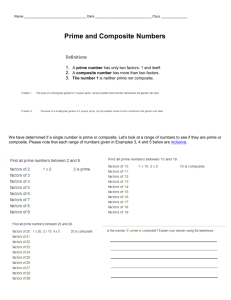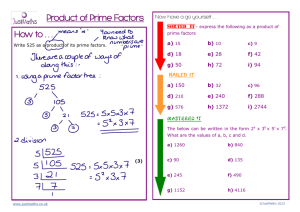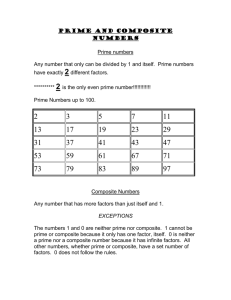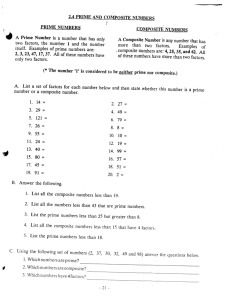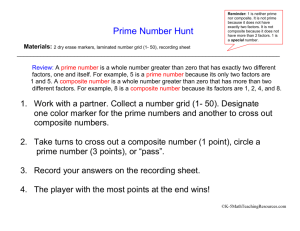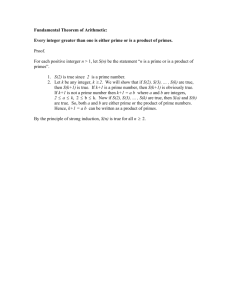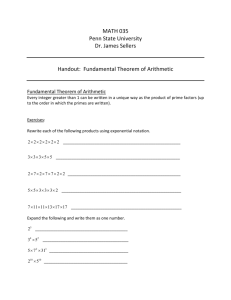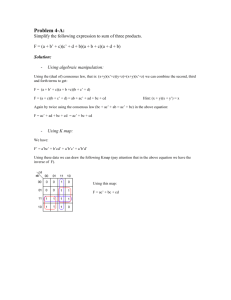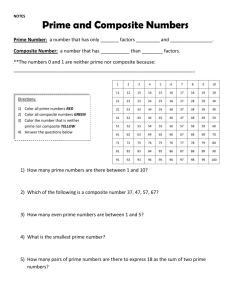Prime and composite integers
advertisement
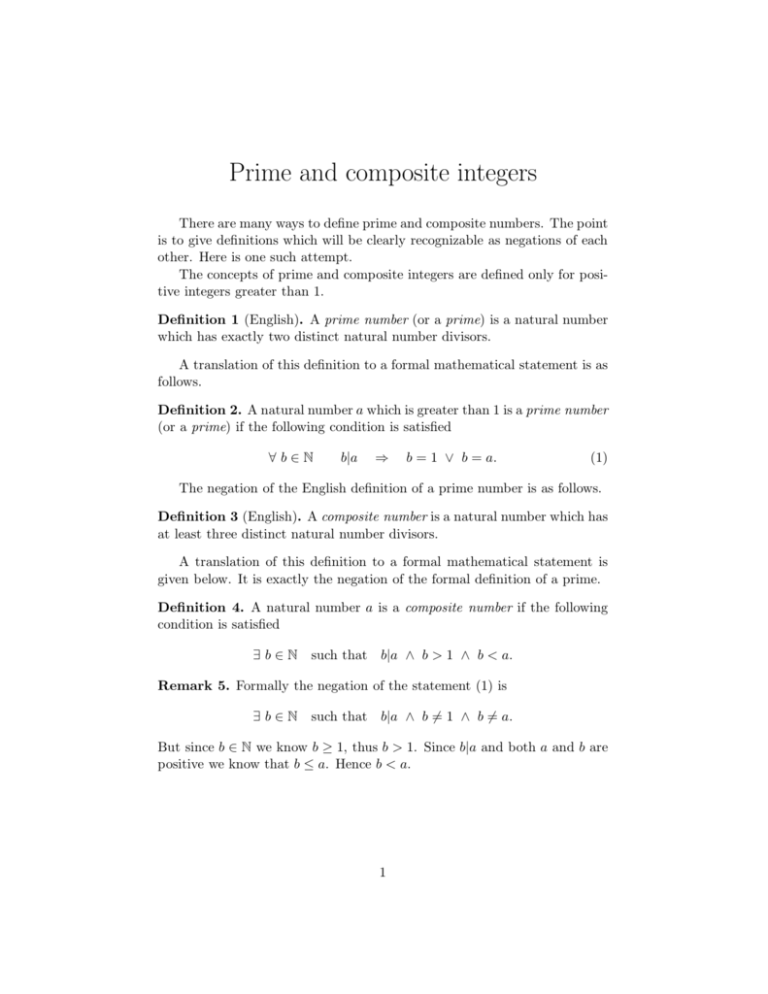
Prime and composite integers There are many ways to define prime and composite numbers. The point is to give definitions which will be clearly recognizable as negations of each other. Here is one such attempt. The concepts of prime and composite integers are defined only for positive integers greater than 1. Definition 1 (English). A prime number (or a prime) is a natural number which has exactly two distinct natural number divisors. A translation of this definition to a formal mathematical statement is as follows. Definition 2. A natural number a which is greater than 1 is a prime number (or a prime) if the following condition is satisfied ∀b∈N b|a ⇒ b = 1 ∨ b = a. (1) The negation of the English definition of a prime number is as follows. Definition 3 (English). A composite number is a natural number which has at least three distinct natural number divisors. A translation of this definition to a formal mathematical statement is given below. It is exactly the negation of the formal definition of a prime. Definition 4. A natural number a is a composite number if the following condition is satisfied ∃b∈N such that b|a ∧ b > 1 ∧ b < a. Remark 5. Formally the negation of the statement (1) is ∃b∈N such that b|a ∧ b 6= 1 ∧ b 6= a. But since b ∈ N we know b ≥ 1, thus b > 1. Since b|a and both a and b are positive we know that b ≤ a. Hence b < a. 1
